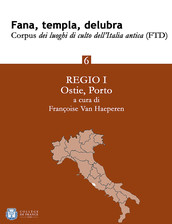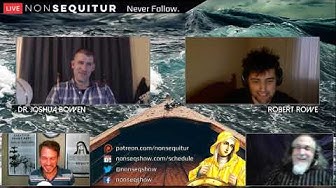Humanities Commons Groups relating to the Ancient World

Groups are
micro-communities designed to facilitate interaction and collaboration
between scholars with common interests. In each group, you will find:
Activity: A centralized place to view all group activity.
Calendar: A shared group calendar for conferences, lectures, classes, and other events of interest to this group's members.
Discussion:
Your home for conversation. Use the Discussion area to communicate with
other group members: ask questions, promote publications and events,
request feedback, post CFPs, and so on.
Docs: Basic collaborative authoring functionality for the group. Great for collaborating on abstracts, petitions, etc.
Files: A shared storage area for PDFs, images, spreadsheets, and other documents of potential group interest.
From CORE:
Pertinent papers, syllabi, blog posts, book reviews, and other
scholarship from the repository that have been shared by group members.
Site: All groups have the option to create a collaboratively authored WordPress site.
Want to know more about Groups?
View our tutorial.
active 4 hours, 53 minutes ago
Scholars working on languages, history and archaeology of Mesopotamia and surrounding regions
-
active 4 hours, 54 minutes ago
Archaeology and texts of the Ancient Near East
-
active 11 hours, 57 minutes ago
This group is dedicated to sharing
scholarship and teaching materials on women in the ancient world–Greek,
Roman, Egyptian, Near Eastern, Chinese, Indian, etc.
-
active 1 day, 22 hours ago
All aspects of Greek and Roman intellectual history and its reception
-
-
active 2 days, 1 hour ago
A group for those interested in the eastern Mediterranean Late Bronze Age and Early Iron Age
-
active 2 days, 2 hours ago
The study of ancient Greek and Roman in their presence and influence on post-classical times and places, not least in the West.
-
active 2 days, 2 hours ago
A general group for archaeologists and those interested in archaeology.
-
active 2 days, 2 hours ago
A group for HCommons members interested in Classical archaeology.
-
active 2 days, 2 hours ago
For scholars interested in the study of historians and historiography in the Ancient World
-
active 2 days, 2 hours ago
All aspects of the ancient Greek and Roman worlds and their continuing presence in modernity
-
Hebrew Bible / Old Testament
active 2 days, 4 hours ago
For all scholars of the Hebrew Bible / Old Testament
-
Ancient Jew Review
active 2 days, 18 hours ago
A group for scholars of or interested in ancient Judaism.
-
active 2 days, 18 hours ago
For scholars interested in the study of Late Antiquity
-
active 2 days, 18 hours ago
A group those interested in the academic study Jewish and Christian scriptures, canonical and non-canonical.
-
active 2 days, 18 hours ago
A group dedicated to the study of second century Christianity including the Apostolic Fathers.
active 6 days, 7 hours ago
For all those interested in Near Eastern Archaeology
-
active 1 week ago
A group for anyone interested in the archaeology of the Roman provinces.
active 1 week ago
A group for those interested in the archaeology of Roman Italy and the Roman Empire.
active 1 week ago
A forum for scholars studying Christian mysticism from all periods of history.
-
active 1 week ago
Dedicated to history and literature of Syriac-speaking communities.
active 1 week ago
This group intends to gather scholars of Gnosticism, to confront the definition, the origins, the development of this phenomenon
active 1 week ago
For those working in the field of New Testament studies.
active 1 week ago
For those interested in the study of non-canonical texts and traditions.
active 1 week, 1 day ago
Die TAG Turicum soll eine Plattform
darstellen, um diverse archäologische Theorien kennenzulernen,
bestehendes theoretisches archäologisches Wissen zu vertiefen und Ideen
und neue theoretische Ansätze in der Ar […]
-
active 1 week, 5 days ago
For all those interested in biblical archaeology.
-
active 3 weeks ago
Founded in 2016, the Union for Nubian
Studies (UNS) is an academic and para-academic effort to bring together
all fields of Nubian studies. UNS hopes to form a community engaging in
all periods of Nubian history […]
-
active 1 month, 1 week ago
Group for the promotion of the study of Race and Ethnicity in the Classical world and it reception
-
active 1 month, 1 week ago
A group for the philology (including
epigraphy, papyrology, and text criticism) and linguistics of Ancient
Greek, Latin, and related languages.
active 1 month, 1 week ago
A tool for sources, databases, images,
discussions and publications relating to the material sources for early
Islam, the Late Antique Near East, North Africa and Central Asia
-
active 2 months, 2 weeks ago
A site for those engaged in both the theory and practice of textual criticism of the Hebrew Bible.
-
active 2 months, 2 weeks ago
Resources/discussion on the burgeoning interdisciplinary field of cultural heritage studies
-
active 3 months ago
A group for all those interested in the
intersection of Greek-Arabic and Arabic-Greek translation, as well as
its broader social, political, intellectual, and cultural contexts.
-
active 3 months, 1 week ago
Inter-disciplinary, capacious chronology.
active 3 months, 1 week ago
A group for scholars interested in Origen (of Alexandria) and his reception.
active 3 months, 2 weeks ago
This group is for anyone interested in the Digital Syriac Corpus project (syriaccorpus.org).
-
active 3 months, 2 weeks ago
This group has been created to explore the
creation of an inclusive open-source historical mapping community, with
a focus on Early Modern London, Early Modern England and Wales, Ireland
and Scotland, and their […]
-
active 4 months, 3 weeks ago
A group interested in the archaeology of
the Byzantine Empire from the 4th c. and up to the 15th c. Matters of
publications but also of archaeological practice and method will be
covered.
active 4 months, 3 weeks ago
Notifications and discussions, related to texts from Qumran and other Judean Desert sites.
-
active 7 months, 3 weeks ago
For anyone interested in numismatics of the ancient world.
-
active 7 months, 4 weeks ago
A group for scholars interested in the ancient Jewish and/or Christian narrative Joseph and Aseneth.
active 8 months, 1 week ago
A group dedicated to the study of Roman
imperial frontiers (limites) through archaeology, history, material
culture, and comparative frontier studies.
active 8 months, 2 weeks ago
Archaeology of ancient pre-Roman Italy
active 9 months, 4 weeks ago
Everything to do with Roman arms and armour, whether archaeology, history, or experimental archaeology and re-enactment
active 10 months, 3 weeks ago
Women face significant challenges in the
discipline of archaeology, from harassment on fieldwork to unbalanced
treatment in the university setting. Assemblage is a shareable resource
for female archaeologists and […]
active 11 months, 2 weeks ago
Dedicated to all things Ben Sira
active 1 year ago
For all those interested in Egyptology.
active 1 year, 10 months ago
The place for all-things related to bioarchaeology in the Ancient Near East.
active 2 years ago
Early Christian Studies in Hungary
Private Group / 1 member





































 Stumble It!
Stumble It!
